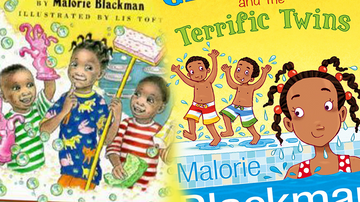Representation in children's literature is vital in shaping a child's understanding of the world and themselves. For too long, dark-skinned black characters have been erased and ignored in the UK publishing industry, leading to a lack of diversity and inclusion in children's books. The whitewashing of characters is a prime example of this, with publishers opting to replace darker-skinned characters with racially ambiguous or lighter-skinned characters to make stories more palatable for mainstream media.

Malorie Blackman, a prominent Black British author, has experienced firsthand the whitewashing of her characters. Her popular books, such as 'Girl Wonder and the Terrific Twins' and 'Pig Heart Boy', originally featured dark-skinned black characters on the covers, but were later reprinted with lighter-skinned or racially ambiguous characters. This erasure and watering down of black characters perpetuates harmful stereotypes and sends a message to young readers that their stories and experiences are not worthy of representation.

But there is reason to be hopeful. The recent republishing of "Pig Heart Boy" with a dark-skinned character suggests that the publishing industry may be starting to recognise the importance of accurate representation in children's literature. Perhaps publishers are starting to see the power of dark-skinned Black characters and the positive impact they can have on young readers or just simply the value of The Black Pound.

However, there is still a long way to go. The publishing industry needs to do more to uplift diverse voices and ensure that books by authors of colour are given the same level of attention and promotion as books by white authors. This includes acquiring more books by diverse authors, promoting these books to a wider audience, and examining the biases and systemic issues within the industry itself.
True representation is not just a matter of having a token character or two in a story. It is about accurately and authentically representing the experiences and stories of people from diverse backgrounds. It is time for the UK publishing industry to take responsibility for their lack of representation, and actively work towards creating a more inclusive and diverse literary landscape for future generations.




